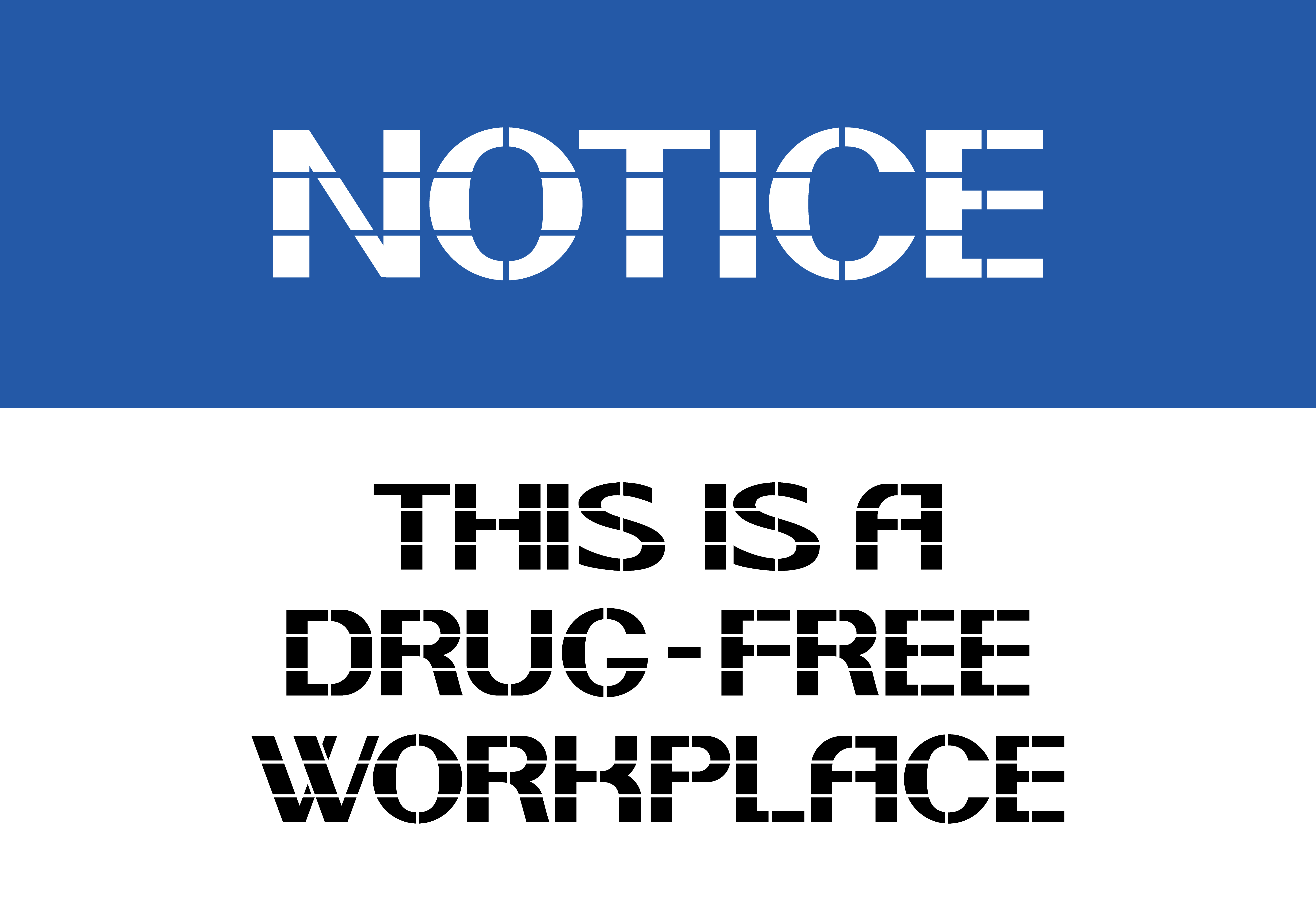The daunting challenge of maintaining a drug-free workplace

With a national opioid crisis that defies holistic solutions, the legalization of medicinal marijuana in more than 30 states and recreational marijuana in 10 states, increases in deadly overdoses in the workplace, changing state laws, confusion over OSHA’s anti-retaliatory drug testing rule, and concerns about medical privacy, no employer should think they are immune to the problem. In fact, according to the National Safety Council (NSC), 15.6% of American workers live with a substance disorder and The Hartford reports that 64% of HR professionals are ill-prepared to help a worker with an opioid addiction.
These factors, coupled with a tight labor market and low unemployment, have led some employers to soften zero-tolerance policies for jobs where safety is not critical and there is a low risk of injury or error. The decision to relax zero-tolerance policies requires buy-in from company leadership and supervisors as well as serious evaluation of the consequences. Although the legalization of marijuana exponentially increases the complexity of the issue, the reasons for maintaining a drug-free workplace remain constant: safety of employees and customers, lower absenteeism, reduced turnover, fewer workers’ comp claims, fewer workplace conflicts, and reduced liability for workplace accidents.
It’s also troublesome for supervisors because substance abuse often falls below the radar of the workplace. Yet, for five consecutive years, unintentional workplace overdose deaths have increased by at least 25%. Drug testing, which is often a critical component of a zero-tolerance policy, can identify those at risk.
Here are five things to consider when evaluating a drug policy:
Legal concerns
While federal law regulating drug testing affects some heavily-regulated industries, there is no comprehensive federal law regulating drug testing in the private sector. The Drug-Free Workplace Act of 1988 requires all recipients of federal grants and some federal contractors to maintain a drug-free workplace. The ADA does not consider drug abuse a disability and allows drug testing; however, disability discrimination is a significant legal risk. If an applicant is not hired or an employee is terminated because of a positive drug test and the medication was legally prescribed for a disability, the employer could be liable. Reasonable accommodations must be provided at application, hiring, and during employment.
State laws that do regulate workplace drug testing vary widely and are constantly changing. Generally, state laws allow employers to drug test job applicants. However, many have rules about providing notice, preventing discrimination, and following procedures to prevent inaccurate samples. The laws governing testing of current employees varies widely by state, with some prohibiting random testing and others requiring ‘reasonable suspicion.’ There are also laws governing post-accident testing. It’s critical to understand and stay abreast of the laws in all the states in which you operate.
Marijuana
Marijuana is one of employers’ biggest worries and one of the driving reasons for employers to relax pre-employment drug testing. There is legitimate fear that it will reduce the pool of qualified candidates. Some address this issue by removing marijuana from the test panel for many positions that are not safety-critical.
The laws vary significantly with states that have legalized marijuana and case law is limited and evolving. Some states have card holder anti-discrimination statutes and some states prohibit firing of an employee who tests positive for marijuana while others allow it. Although all marijuana use is still illegal under federal law, state courts across the country are deciding cases on medical marijuana use and accommodation. Employers are wise to consider whether positive drug tests are connected to medicinal use before making employment decisions.
Employers should be careful about penalizing employees for off-duty marijuana use, since some states have statutes protecting employees. However, most states permit employers to prohibit marijuana use on their premises and to discipline employees who come to work under the influence.
While the uncertainty is unnerving for employers, a growing number of states are writing statutes to remove the ambiguities. Statutes in Arizona, Arkansas, Connecticut, Delaware, Illinois, Maine, Massachusetts, Minnesota, Nevada, New York, Pennsylvania, Rhode Island, Washington DC, and West Virginia address employment protection for medical marijuana patients.It’s still possible to restrict marijuana use in these states, but care needs to be taken in crafting and enforcing a policy.
If you choose to differentiate marijuana policies from other drug policies, consider these questions:
- Will treating marijuana differently create problems in the workforce?
- Under what circumstances will employees be tested for marijuana?
- What are the consequences of not testing (i.e. more injuries, absenteeism)?
- What is the process to determine a medical exception to the policy?
- What happens when an employee fails the test?
Workers’ Comp
Substance abuse can contribute to workplace accidents and a drug-free workplace helps prevent accidents, thus lowering workers’ comp costs. In some states, employers implementing a drug-free workplace receive a premium discount. As of October 2018, 13 states had such laws. While the requirements and discounts vary, the states include Alabama, Arkansas, Florida, Georgia, Idaho, Kentucky, Mississippi, Ohio, New York, South Carolina, Tennessee, Virginia, and Wyoming.
In addition, some states have enacted laws to make it easy for employers who properly drug test to deny workers’ compensation benefits. For example, Florida law provides that if the employee tests positive for drugs, then “it is presumed that the injury was occasioned primarily by . . the influence of the drug upon, the employee.”
Medical marijuana raises thorny issues for employers. Can a claim be denied if an employee tests positive for using state-approved medical cannabis? Can an injured employee receive medical marijuana to treat a workplace injury? Both are new and evolving issues that will be the subject of future court cases and state regulations. The Minnesota Department of Labor & Industries issued rules allowing cannabis as a reimbursable form of medical treatment.
OSHA
The anti-retaliatory provisions of OSHA’s e-Recordkeeping rule resulted in considerable confusion about post-injury drug testing policies, which was somewhat clarified in a guidance memo in October 2018. Before doing post-accident drug testing, employers should:
- Have a reasonable basis to conclude drug use could have contributed to the injury
- Test all employees whose conduct could have caused an accident, even if they were not injured
- Identify high hazard work as a reason for testing
- Determine if the drug test can provide insight to the root cause of incident
- Consider whether drug test is capable of measuring impairment at the time the injury occurred
- Ensure employees are not discouraged or dissuaded from reporting injuries
Remember, the rule does not affect new hires, random testing, or testing to comply with state or federal laws or required by Workers’ Comp insurers.
Privacy
Although challenges to workplace drug testing policies on the grounds that they violate employees’ privacy have generally not been successful, the manner in which the test is conducted and how the results are used have been successfully challenged. Drug test results are considered protected health information and must be kept confidential. Further, as laws on employee privacy continue to evolve, testing that is not clearly authorized by law could be open to legal challenges.
Conclusion
Zero-tolerance policies are strong stands that send an important cultural message, but like any policy it should be evaluated periodically. How effective has it been? Has it hampered recruitment and retention efforts for positions that are not safety-critical? Has it prevented workers from seeking the help they need to deal with substance abuse? Does it impede flexibility?
Anecdotally, more employers are tailoring drug testing to the job and adding a fitness-for-duty component. Any policy changes require serious consideration as protecting employees remains the top priority. However, no change in policy should excuse an employee who is impaired while working. There’s just too much at risk.
DISCOVER SEVEN SECRETS THAT COST YOU PLENTY
Overcharges are rampant in workers’ compensation. Find out why!
[contact-form-7 id="1357" title="INNER WORKCOMP ADVISORY SIGN-UP"]